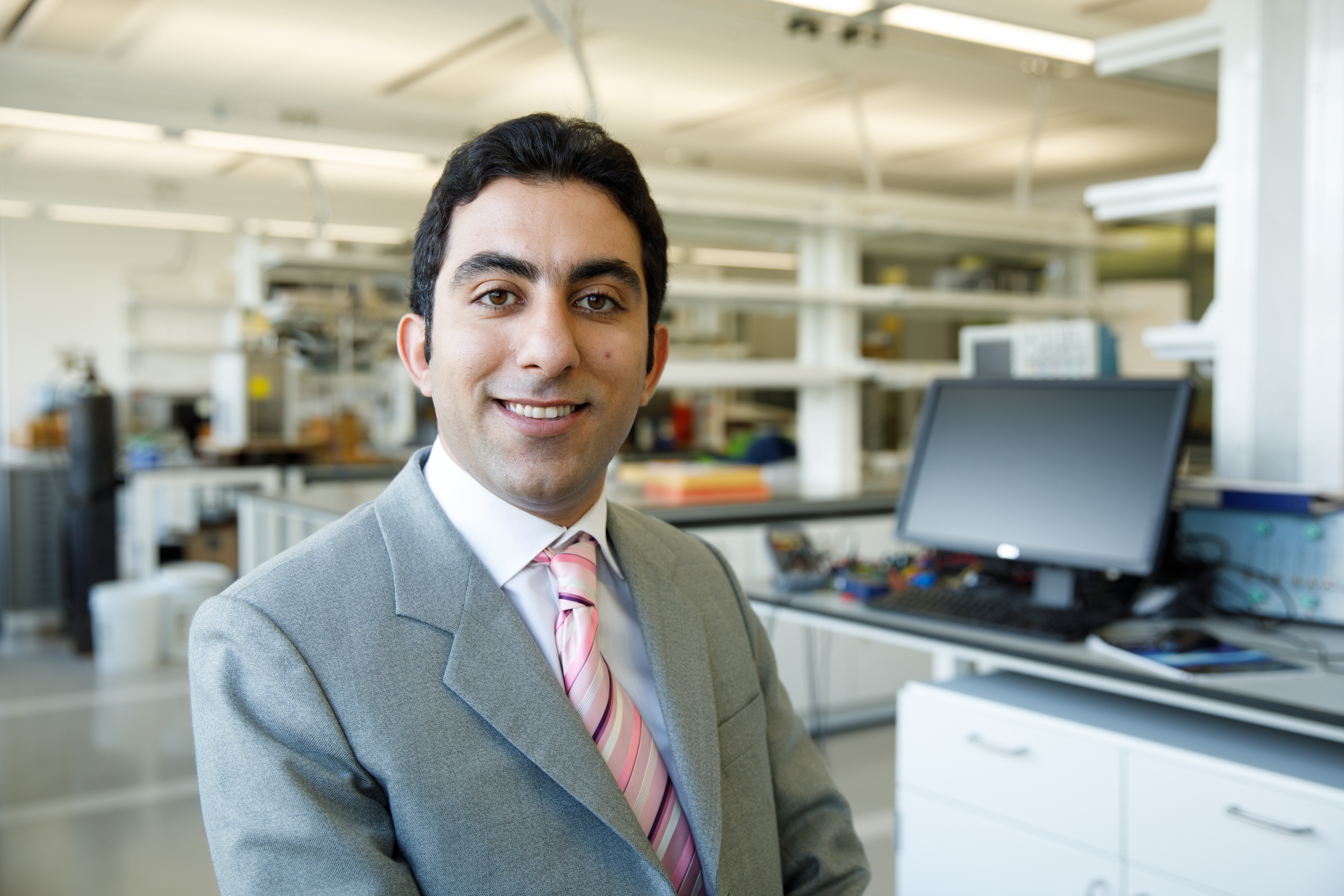Interdisciplinarity is critical to the work the GW Engineering Environmental and Energy Management Institute (EEMI) performs around solving complex and nuanced environmental and energy challenges. In September 2023, four faculty members of EEMI were awarded a research grant from GW’s Cross-Disciplinary Research Fund (CDRF) for the project “Establishing a GW Research Platform for Promoting an Equitable and Sustainable Green Economy.”
CDRF grants aim to establish one-year collaborative research partnerships within chartered centers and institutes or between two or more diverse disciplines that encourage strong applications to externally funded opportunities. This project will be led by the Principal Investigator (PI) Dr. Payman Dehghanian, EEMI Director of Smart Grid Technologies and Associate Professor in the Department of Electrical & Computer Engineering, who will receive support from co-PIs Dr. Mukes Kapilashrami, EEMI Director of Programs and Operations, Dr. Robert Orttung, EEMI Director of European, Russian, and Eurasian Studies and Research Director for the GW Sustainability Institute, and Dr. Jonathan Deason, EEMI Executive Director and Professor in the Department of Engineering Management & Systems Engineering.
The project is designed to integrate and enhance GW’s expertise in energy technologies and engage with public and private stakeholders to produce community-based research opportunities that will address issues defined by society and stakeholder groups focusing on promoting a green economy. It will involve a focus on four specific projects, as follows:
- The evolution of hydrogen as an energy source
- Equity-centered implementation of renewable energy technologies in Washington, D.C.
- The influx of new green energy technologies in Northern Sweden, including tradeoffs between these developments and the traditional lifestyles of the local Indigenous population
- Introducing environmentally friendly measures for data centers in Northern Virginia, home to the largest number of data centers in the U.S.
This multi-disciplinary effort is anticipated to lead to sustained engagement among GW researchers, external stakeholders, and community leaders in the four areas identified above. It will also position GW faculty members to apply for extramural funding from multiple agencies such as NSF, DOE, DOD, the Swedish Government, the European Union, the DC Government, and private foundations.
Each of the four focal areas will emphasize the inclusion of underserved communities. Project outcomes are intended to ensure that adopting and implementing environmentally sustainable practices and technologies will help reduce the negative impacts on disadvantaged communities, which often are disproportionately affected by environmental pollution. Through the collaboration of these varying disciplines, the project’s goals may enhance GW’s expertise in energy technologies.


